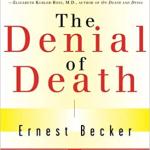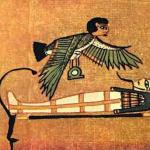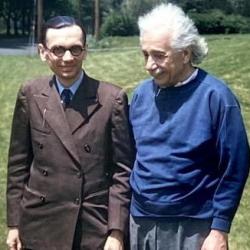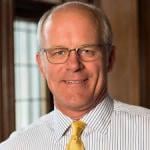ST 4112. Afterlife 2
Death in Naturalism
When yer dead, yer dead!
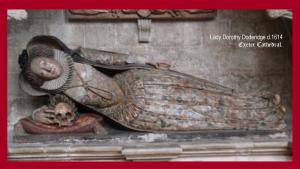
When yer dead, yer dead! When yer in yer grave, don’t expect more than oblivion. Don’t expect more than the total loss of your subjective first person consciousness.[1] That’s all there is to it. Your lifeless corpse gets buried and becomes food for worms. Death is natural. Get over it![2]
When television personality Roger Ebert died in 2011, he sent a message to his viewers. “I do not fear death,” he said. Ebert took a naturalistic position. “I say, again with Whitman:
I bequeath myself to the dirt to grow from the grass I love,
If you want me again look for me under your boot-soles.”
Is that all there is?
“When yer dead, yer dead,” is the view of death in naturalism. According to Sam Tetrault in a Cake blog post, atheism and naturalism come wrapped in the same package. “In general, most atheists are very death positive. They see death as a natural part of life.”
Nature’s processes expose us in birth and will dispose of us in death. That’s all there is.
Popular singer Peggy Lee asked, “Is That All There Is?” If so, she answered, let’s keep dancing.
In Afterlife 1, we reminded ourselves that we feel anxious in the face of our mortality. This anxiety leads on some occasions to a denial of death. But, here in Afterlife 2, we note how “death in naturalism” appears to be a realistic acceptance of our fate. When yer dead, yer dead!
Life After Somebody Else’s Death
 “Do you believe in life after death?” Religious scholar Elaine Pagels asked her husband, Heinz (Pagels 2020, Chapter 6).
“Do you believe in life after death?” Religious scholar Elaine Pagels asked her husband, Heinz (Pagels 2020, Chapter 6).
“Yes, of course,” he answered. “But not my life after my death.”
When yer dead, yer dead. Yet, others live on after our death without us. That’s a kind of life after death.
Death in Naturalism as Facing Death without Religion
Is facing our own death without religion terrifying? No. At least according to Christel Manning, writing in the Harvard Divinity School Bulletin. Manning interviewed so-called “nones” [people with no religious affiliation] about facing death with no religion.
“How do atheists, agnostics, and other secularists find meaning at the end of life? How do they make sense of mortality without religion?…Like religious narratives, they articulate the meaning of human existence to solmething bigger than ourselves, and they suggest a moral dimension….Science-based narratives can evoke a sense of awe and wonder, a perception that we are part of a meaningful universe that gives order to our past and offers insight for the future.”
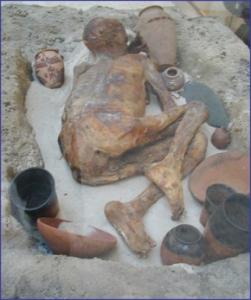
It appears that interpreting nature through the eyes of science provides a sense that “we are part of a meaningful universe.” What!? The method employed by scientists presupposes at the outset that nature and natural processes are without meaning. In fact, if a scientist dares to see meaning in nature, that scientist is dubbed a quack. So, despite the fact that science as science expunges all meaning from the world it studies, “nones” find meaning in a scientific picture of nature. Curious.
Despite the contradiction, the persons Dr. Manning interviewed still found their lives meaningful in the face of death. What people say provides data, to be sure. And this obtains even if self-inconsistent.
“What happens to us has material causes that can be explained by science. And though there is no inherent purpose in the universe, we can create meaning for ourselves. Life is reciprocal and interdependent; our actions ripple out into all aspects of nature. Death is part of life and should remind us of our kinship to other animals.”
On the one hand, by incorporating death in naturalism, we conclude that when yer dead, year dead! Yep! That’s all there is.
Yet, on the other hand, there is more. We can find comfort in knowing—before we die—that we belong to nature’s biosphere, a domain of reality we share with the animals and even the plants.
“From a natural science frame, death is the end of individual existence and consciousness, and my respondents often imagined it as analogous to experiencing anesthesia before surgery. And yet life goes on. Our bodies are recycled and nourish future plant life.”
Is death only natural? Or, the wages of sin?
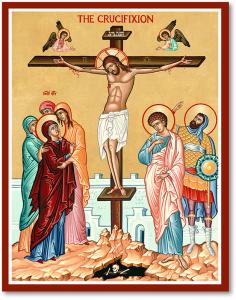
Is death only natural? Or, is death somehow associated with sin? In the Genesis account of Adam and Eve, sin led to their loss of eternal life. “For the wages of sin is death,” writes St. Paul. Then he adds, “but the gift of God is eternal life in Christ Jesus our Lord” (Romans 6:23).
Let’s ask a theologian. Former editor of Dialog, Kristin Johnston Largen, reflects on this connection of death to both nature and sin.
“Death in and of itself is natural. That is, it is both unavoidable and necessary—even good, when viewed from an evolutionary perspective: new life requires death to come into existence, and in that sense, it is something to be embraced—neither avoided nor resisted, nor viewed as sinful or as a punishment from God” (Largen 12/2018, 279).
Death in naturalism is only natural. When yer dead yer dead. Yet, theologically, more needs to be said. Death and sin can be connected.
“At the same time however, clearly there are aspects of death that are to be resisted, aspects that are sinful, and that are a regrettable—even demonic—manifestation of brokenness in the cosmos. These aspects include unnecessary suffering, privation, intentional cruelty and torture, and disease. Particularly when it comes to individual deaths, there are many aspects of the experience that we can and should seek to eradicate—both for humans and for animals” (Largen 12/2018, 279).
Death in Naturalism and in Various Religions
In her study of afterlife concepts in various religions, Catherine Wolff reports again and again that our moral behavior while on earth gets judged (Wolff 2022). After death, the good receive a reward while the sinful must bear punishment. This anticipation of double destiny appears in Zoroastrianism, Plato, Judaism, Christianity, and Islam. Even Hinduism with the doctrine of karma anticipates future reincarnations determined by our moral actions in this life.
What does this suggest? It suggests that moral goods such as justice and virtue are eternal. What is right is not merely the product of human imagination or cultural construction. Rather, there exists a universal and eternal standard of justice that you and I silently recognize. It’s the moral law within, as philosopher Immanuel Kant would say.
We might respond to Peggy Lee by saying, “that’s not all there is. There’s purpose in our lives that requires more attention than merely dancing.”
What’s next?

Here’s where we have been and where we’re going in this Patheos series on the afterlife.
- The Denial of Death
- Naturalism: When yer dead yer dead!
- Astral Body? Ka? Or Angel?
- Third Day Afterlife
- Immortal Soul
- Reincarnation
- Near Death Experiences
- Communication with the Dead
- Absorption into the Mystical Infinite
- Resurrection of the Body
Conclusion
Naturalism is an ideology. Death in naturalism understood as simply—when yer dead, yer dead—is an ideological construction. Naturalism competes with a wide variety of alternative worldviews such as dualism, according to which a supranatural sphere overlays the natural sphere of reality. Now, I’m not advocating dualism over against naturalism, by any means. Rather, I’m simply pointing out that naturalism constitutes one construction among many others. Naturalism has no privileged place among the options.
Christians rely on a specific historical event—the first Easter when God raised the dead Jesus to new life—as a divine revelation which repositions naturalism. Death in naturalism gets dislodged by death on the cross and God’s promise of resurrection.
▓
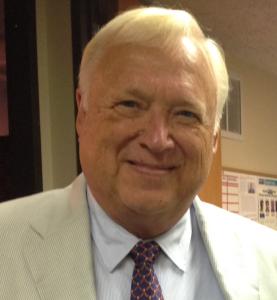
Ted Peters is a Lutheran pastor an emeritus professor at the Graduate Theological Union. He co-edits the journal, Theology and Science, with Robert John Russell on behalf of the Center for Theology and the Natural Sciences, in Berkeley, California, USA. His single volume systematic theology, God—The World’s Future, is now in the 3rd edition. He has also authored God as Trinity plus Sin: Radical Evil in Soul and Society as well as Sin Boldly: Justifying Faith for Fragile and Broken Souls. See his website: TedsTimelyTake.com.
He is about to publish a new 2023 book, The Voice of Public Theology, to be published by ATF Press.
▓
Notes
[1] Some naturalists are unwilling to accept oblivion. They prefer mysticism. “This paper critiques the widespread secular misunderstanding of death as a plunge into oblivion….the notion of a blank or emptiness following death is incoherent, and that therefore we should not anticipate the end of experience when we die. This conclusion has a bit of a mystical feel to it, even though the premises are naturalistic.” Thomas W. Clark, “Death, Nothingness, and Subjectivity.” [2] Cal Tech scientist Sean Carroll (cited by Greek Reporter) believes what we know scientifically prevents an afterlife. He stated: “Claims that some form of consciousness persists after our bodies die and decay into their constituent atoms face one huge, insuperable obstacle: the laws of physics underlying everyday life are completely understood, and there’s no way within those laws to allow for the information stored in our brains to persist after we die.”Bibliography
Becker, Ernst. 1973. The Denial of Death. New York: Free Press.
Largen, Kristin Johnston,. 12/2018. “Un/natural death and distinction.” Dialog 57:4 279-286.
Pagels, Elaine. 2020. Why Religion? A Personal Story. New York: Ecco.
Peters, Ted. 1993. Sin: Radical Evil in Soul and Society. Grand Rapids MI: Wm B Eerdmans.
Wolff, Catherine. 2022. Beyond: How Humankind Thinks about Heaven. New York: Penguin.



